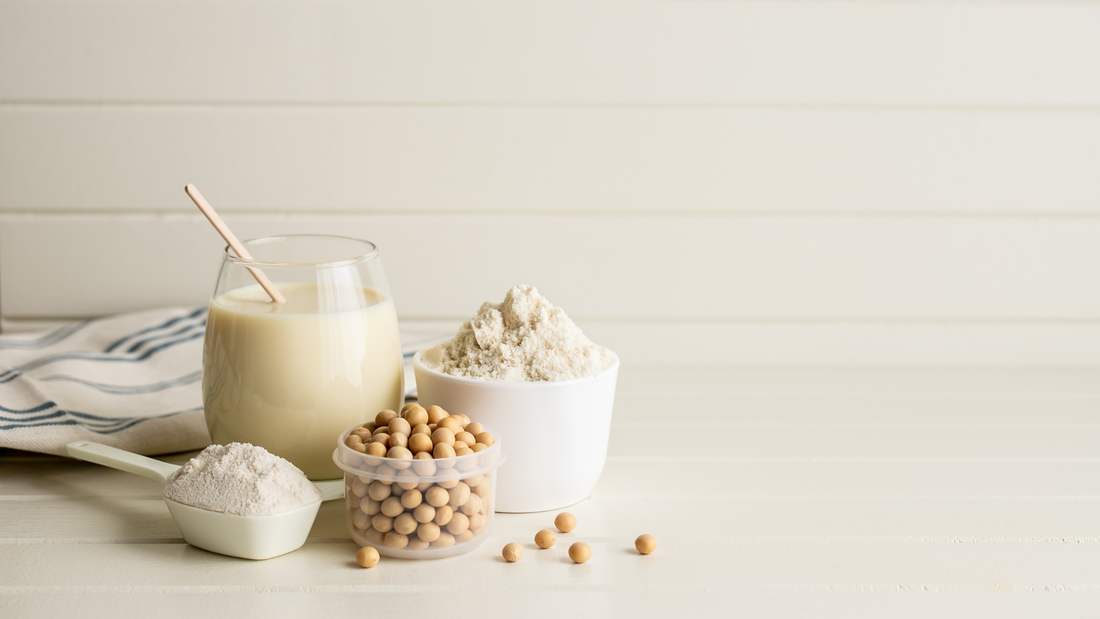We’ve asked our in-house dietitian, Corrine Toyn, about the crucial role of protein in maintaining and building muscle, especially during a period of illness. Read on to find out more.
What is the role of protein in building muscle?
Protein is an essential macronutrient that plays a vital role in various bodily functions, especially in muscle maintenance. The importance of protein becomes even more pronounced during periods of illness, where the body’s requirements for this nutrient significantly increase.
Proteins are composed of amino acids, which are the building blocks of muscles. There are 20 different amino acids, nine of which are essential, meaning they must be sourced through diet as the body cannot make them by itself. Muscle protein synthesis (MPS) and muscle protein breakdown (MPB) are continuous processes that occur within the body. For muscle maintenance, the rate of MPS must at least match the rate of MPB. By consuming adequate protein, this ensures that the body has a sufficient supply of amino acids to support MPS and maintain muscle mass.
What is muscle protein synthesis (MPS)?
MPS is the process by which the body repairs and builds muscle tissues. For context, this process is particularly active after exercise, which creates micro-tears in muscle fibres. By consuming protein post-exercise, the body has access to necessary amino acids that help repair muscle, leading to muscle growth and strengthening. The amino acid called leucine, found abundantly in foods like meat, dairy, and legumes, is especially crucial for stimulating MPS.
What is muscle protein breakdown (MPB)?
MPB, on the other hand, is the process by which muscle proteins are broken down into amino acids. This occurs when the body requires amino acids for energy or other metabolic functions. If the breakdown exceeds synthesis, muscle loss occurs. Therefore, maintaining a balance between MPS and MPB is essential for muscle health. Adequate protein intake is a key factor in achieving this balance.
Do protein needs increase during illness?
During illness, the body’s metabolic demands increase significantly. Inflammatory responses, fever, and infection can accelerate muscle protein breakdown. Conditions such as chronic illnesses, injuries and infection are associated with increased protein breakdown. The body utilises more protein to repair tissues, produce cells that help fight illness and produce metabolites needed for recovery.
Illness often places the body in a state called ‘catabolysis’. This is where muscle tissue and fat is broken down in order to survive. The problem is that tissue breakdown happens faster than it is built. This is especially prevalent in severe conditions like sepsis, cancer, and major surgeries. Consequently, increased breakdown of muscle protein can lead to muscle wasting and weakness, further complicating the recovery process. Increasing protein intake during illness is crucial to counteract the heightened catabolic activity and support muscle preservation.
How does protein support the immune system?
Proteins are not only vital for muscle maintenance but also for the proper functioning of the immune system. During illness, the body’s need for immune response increases. Proteins are necessary to produce antibodies, cytokines, and other immune cells that help fight infections and diseases. Adequate protein intake ensures that the immune system remains supported, aiding in effective recovery and helping to prevent further complications.
How can you make sure you are eating enough protein?
Most healthy adults need around 0.75 grams per kilogram of body weight per day.1 However, this recommendation can vary based on factors such as an individual’s age and level of physical activity.
For optimal muscle maintenance and recovery during illness, it is important to consume high-quality protein sources that provide all essential amino acids. These include:
- Animal sources: Meat, poultry, fish, eggs, and dairy products.
- Plant sources: Legumes, beans, lentils, tofu, quinoa, and soy products.
Combining a variety of plant-based proteins ensures a complete amino acid profile and so this approach is recommended for vegetarians and vegans.
How much do protein needs increase during illness?
The American Society for Parenteral and Enteral Nutrition (ASPEN) suggests that protein intake should range from 1.2 to 2.0 grams per kilogram of body weight per day (g/kg/day) for individuals experiencing acute or chronic illness.2 Similarly, the European Society for Clinical Nutrition and Metabolism (ESPEN) recommends that for cancer patients, protein intake should be above 1g/kg/day and if possible, up to 1.5g/kg/day.3 In critical care situations, requirements can be even higher to support the increased metabolic demands and prevent muscle wasting.
Do you need a protein supplement?
In some cases, especially during severe illness or when dietary intake is insufficient, protein supplements can be beneficial to help top up the diet with extra protein.
Did you know that icesupp contains 5g of protein per serving? Click here to find out more about icesupp.
Conclusion
Protein plays a fundamental role in muscle maintenance and overall health. During periods of illness, the body’s protein requirements increase significantly due to heightened metabolic demands and increased muscle protein breakdown. Ensuring adequate protein intake from high-quality sources is essential for preserving muscle mass, progressing recovery, and supporting immune function.
In summary, whether you are a healthy individual looking to maintain muscle mass or someone recovering from an illness, paying attention to your protein intake is essential.
Incorporating a variety of protein-rich foods into your diet and considering supplements when necessary can make a significant difference by supporting the body to repair and restore.
References:
- British Nutrition Foundation. Available online: https://www.nutrition.org.uk/nutritional-information/protein/
- Taylor B E et al. Guidelines for the Provision and Assessment of Nutrition Support Therapy in the Adult Critically Ill Patient: Society of Critical Care Medicine (SCCM) and American Society for Parenteral and Enteral Nutrition (A.S.P.E.N.). Crit Care Med. 44(2):390-438.
- Muscaritoli M et al. ESPEN practical guideline: Clinical Nutrition in cancer. Clinical Nutrition. 40(5):2898-2913.
This blog has been written by Corrine Toyn, Registered Dietitian & Marketing Consultant.



